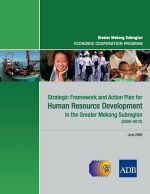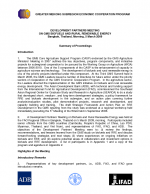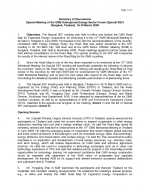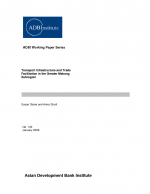The Special SEF meeting was held to refine and finalize the GMS Road Map for Expanded Energy Cooperation, for endorsing it to the 15th GMS Ministerial Meeting to be held in Thailand in June 2009. Formulated in line with the recommendations of the recently completed GMS Energy Strategy Study, the Road Map was earlier presented at the SEF meeting in Ho Chi Minh City, Viet Nam and at the GMS Senior Officials' Meeting (SOM) in Bangkok, Thailand, both held in November 2008. These meetings agreed to further review and hold internal consultations on the Road Map.









